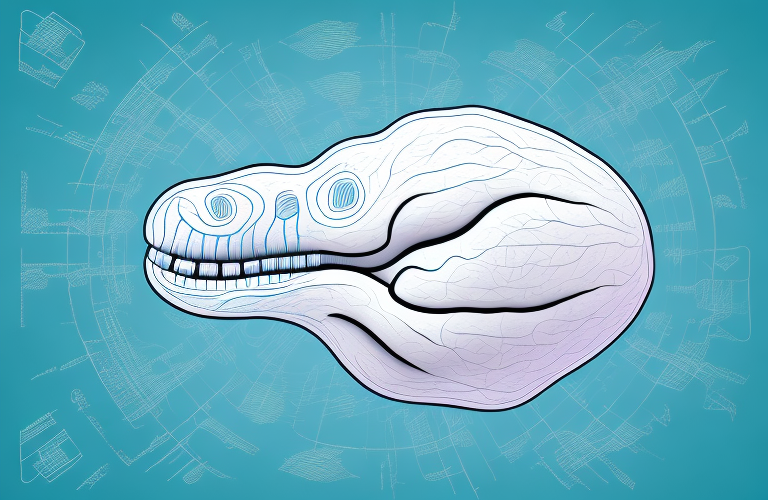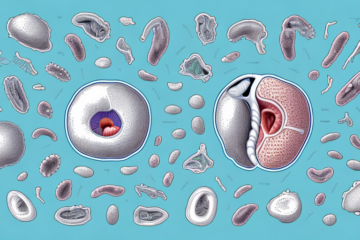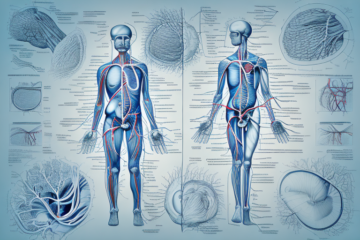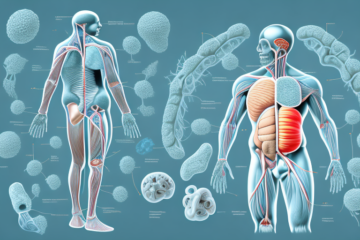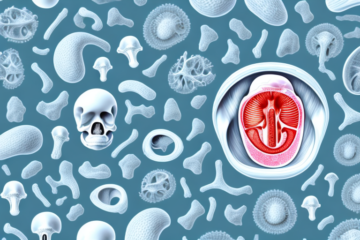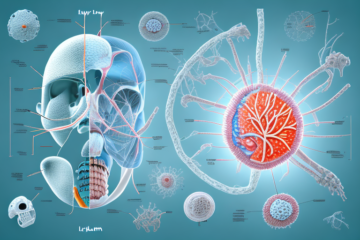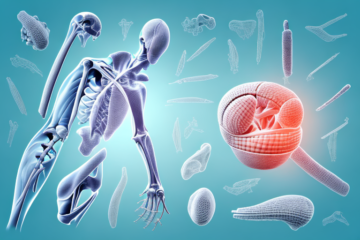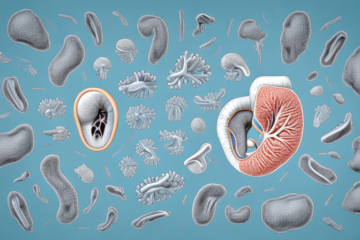Salivary glands are an essential part of the oral cavity and play a crucial role in maintaining good oral health. Without these glands, our mouths would be dry and uncomfortable, leading to difficulty eating, swallowing, speaking, and overall oral discomfort. In this article, we will explore the function, anatomy, and common disorders of the salivary glands, as well as tips for maintaining healthy glands.
The Importance of Saliva: Understanding How Salivary Glands Work
Saliva is critical to maintaining a healthy mouth. Not only does it help break down food, making it easy to swallow, but saliva also neutralizes acid in the mouth, helping to prevent tooth decay. Additionally, saliva contains enzymes that aid in digestion and helps to keep the mouth moist, making it easier to speak and swallow.
Saliva is produced by the salivary glands, which are located in the mouth and throat. There are three pairs of major salivary glands: the parotid glands, the submandibular glands, and the sublingual glands. These glands produce different types of saliva, each with its own unique properties and functions.
Salivary gland disorders can lead to a variety of problems, including dry mouth, difficulty swallowing, and even infections. It is important to maintain good oral hygiene and to seek medical attention if you experience any issues with your salivary glands.
The Anatomy of Salivary Glands: A Closer Look Inside the Mouth
There are three pairs of salivary glands, which are located in and around the mouth. The parotid glands are located in front of the ears, while submandibular glands and sublingual glands are located beneath the tongue. These glands are connected to the mouth by ducts, which release saliva when we chew, swallow, or speak.
Saliva plays an important role in maintaining oral health. It helps to moisten and lubricate the mouth, making it easier to speak and swallow. Saliva also contains enzymes that aid in the digestion of food, and antibodies that help to fight off harmful bacteria and viruses. In addition, saliva helps to neutralize acids produced by bacteria in the mouth, which can cause tooth decay and gum disease.
Types of Salivary Glands: Parotid, Submandibular and Sublingual
The parotid glands are the largest of the three types of salivary glands and produce the most saliva. The submandibular glands are located under the jaw and produce a mixture of saliva and mucus. The sublingual glands are the smallest of the three glands and produce a thicker, more mucus-like saliva.
Salivary glands play an important role in maintaining oral health. Saliva helps to moisten and cleanse the mouth, neutralize acids produced by bacteria, and aid in digestion. In addition to the three main types of salivary glands, there are also hundreds of minor salivary glands located throughout the mouth and throat. These minor glands produce a small amount of saliva and are responsible for keeping the mouth moist and lubricated.
Secretion Process: How Saliva is Produced and Distributed in the Mouth
Saliva production is controlled by the autonomic nervous system and is stimulated by taste, smell, and chewing. When we begin to eat, signals are sent to the salivary glands, causing them to release saliva into the mouth through ducts. Saliva is then distributed throughout the mouth where it helps to break down food, neutralize acid, and aid in digestion.
Saliva also plays an important role in maintaining oral health. It contains enzymes that help to prevent tooth decay by breaking down food particles and reducing the amount of bacteria in the mouth. Saliva also helps to wash away food debris and plaque, which can lead to gum disease and other oral health problems.
In addition to its digestive and oral health benefits, saliva has other important functions in the body. It helps to lubricate the mouth and throat, making it easier to speak and swallow. Saliva also contains antibodies and other immune system components that help to protect against infections and diseases.
Factors Affecting Salivary Gland Function: Dehydration, Medications, and More
Dehydration, certain medications, and some medical conditions can negatively impact salivary gland function. Medications such as antihistamines, diuretics, and antidepressants can decrease saliva production, leading to dry mouth and increased risk of tooth decay.
Dehydration is a common cause of decreased salivary gland function. When the body is dehydrated, it conserves water by reducing saliva production. This can lead to dry mouth, difficulty swallowing, and an increased risk of oral infections. It is important to stay hydrated by drinking plenty of water and avoiding diuretics such as caffeine and alcohol.
In addition to medications and dehydration, certain medical conditions can also affect salivary gland function. Autoimmune diseases such as Sjogren’s syndrome can cause inflammation and damage to the salivary glands, leading to decreased saliva production. Radiation therapy to the head and neck can also damage the salivary glands, causing dry mouth and other oral complications.
Common Disorders of the Salivary Glands: Sialolithiasis, Sjogren’s Syndrome, and Parotitis
There are several disorders that can affect the salivary glands, including Sialolithiasis, a condition where stones form in the salivary gland ducts. Sjogren’s syndrome, an autoimmune disorder, can cause dry mouth and eye problems. Parotitis, an infection of the parotid gland, can cause swelling and pain in the face and neck.
Another common disorder of the salivary glands is Mucocele, which occurs when a salivary gland duct is blocked or damaged, causing a buildup of saliva in the gland. This can result in a painless, fluid-filled swelling in the mouth or on the lips. Treatment for Mucocele usually involves surgical removal of the affected gland.
Additionally, Salivary Gland Tumors are a rare but serious condition that can affect the salivary glands. These tumors can be benign or malignant and can cause symptoms such as swelling, pain, and difficulty swallowing. Treatment for salivary gland tumors may involve surgery, radiation therapy, or chemotherapy.
Diagnosis and Treatment Options for Salivary Gland Disorders
If you are experiencing swelling or pain in the salivary glands, it is important to see a healthcare professional. Treatment for salivary gland disorders may include antibiotics, pain relief medication, or in some cases, surgery.
Salivary gland disorders can be caused by a variety of factors, including infections, tumors, or autoimmune diseases. In some cases, the disorder may be a side effect of certain medications. It is important to identify the underlying cause of the disorder in order to determine the most effective treatment plan.
In addition to medical treatment, there are also lifestyle changes that can help manage salivary gland disorders. Drinking plenty of water, avoiding caffeine and alcohol, and practicing good oral hygiene can all help reduce symptoms. In some cases, massage or warm compresses may also provide relief.
Maintaining Healthy Salivary Glands: Tips for Good Oral Hygiene
Maintaining good oral hygiene is the key to healthy salivary glands. Brushing teeth twice a day, flossing daily, and drinking plenty of water can help to prevent tooth decay and keep salivary glands functioning properly. Additionally, avoiding tobacco products and limiting alcohol and caffeine intake can help to maintain healthy glands.
Another important factor in maintaining healthy salivary glands is regular dental check-ups. Visiting the dentist every six months can help to catch any potential issues early on and prevent them from developing into more serious problems. It is also important to eat a balanced diet that is rich in vitamins and minerals, as this can help to support overall oral health and keep salivary glands functioning properly. By following these tips, you can help to ensure that your salivary glands stay healthy and functional for years to come.
Future Research Directions in Understanding Salivary Gland Function and Disorders
Research in the field of salivary gland function and disorders is ongoing, with a focus on new therapies for salivary gland disorders, including gene therapy and stem cell therapy. As our understanding of the salivary gland function improves, new treatments will become available, improving the quality of life for those who suffer from salivary gland disorders.
Overall, salivary glands play a crucial role in maintaining good oral health and quality of life. Understanding the function, anatomy, and common disorders of these glands is essential for anyone seeking to maintain a healthy mouth.
One area of future research in salivary gland function and disorders is the development of diagnostic tools that can accurately identify the underlying causes of salivary gland dysfunction. This will enable healthcare professionals to provide more targeted and effective treatments for patients with salivary gland disorders.
Another area of research is the investigation of the relationship between salivary gland function and systemic diseases, such as diabetes and Sjogren’s syndrome. Understanding this relationship could lead to new treatments for both salivary gland disorders and systemic diseases.

